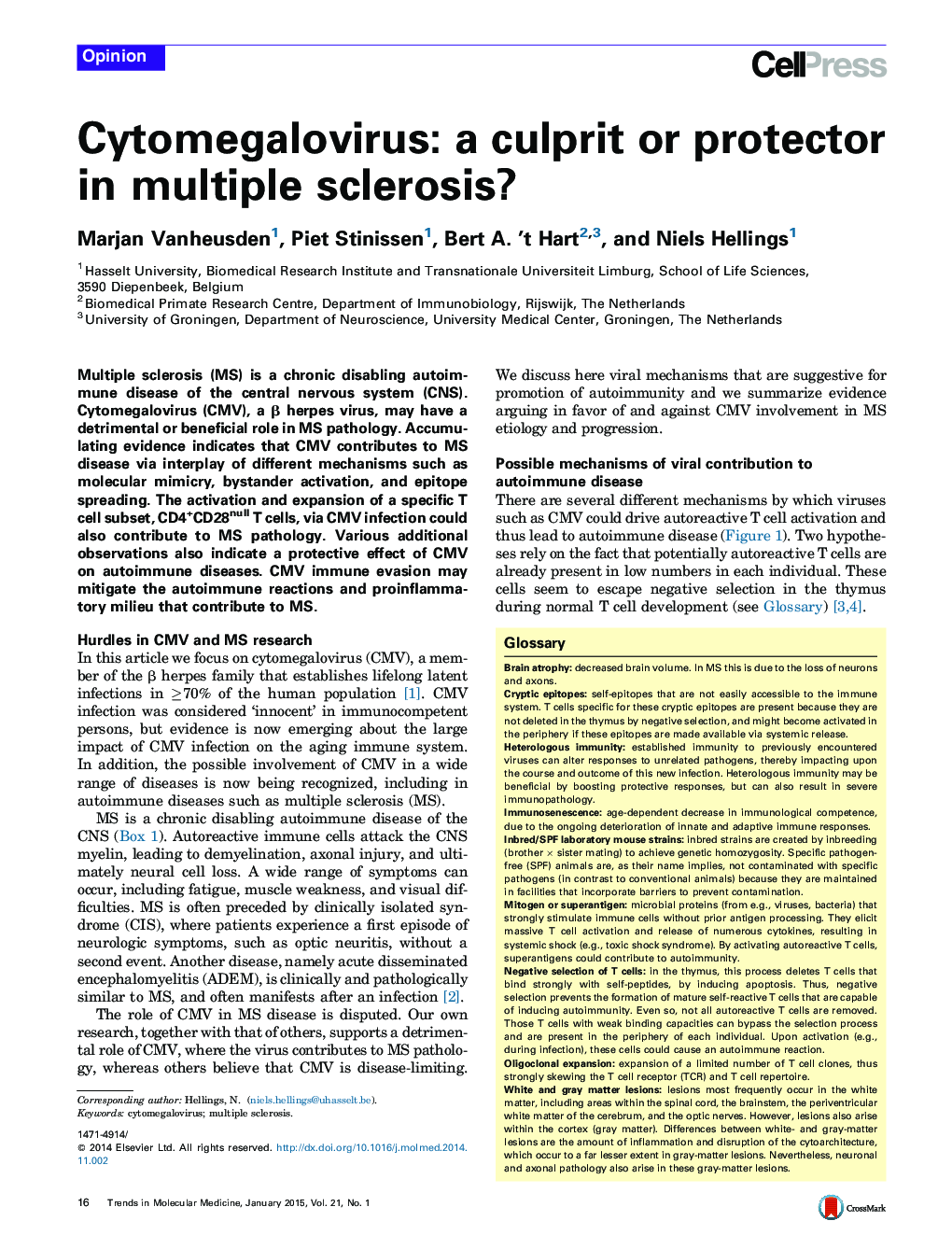| Article ID | Journal | Published Year | Pages | File Type |
|---|---|---|---|---|
| 2838423 | Trends in Molecular Medicine | 2015 | 8 Pages |
•Possible mechanisms by which viruses might elicit autoimmunity are summarized.•Strong evidence is provided in favor of a detrimental role for CMV in MS.•Alternative evidence suggesting a beneficial effect of CMV infection in MS is given.•The relation between aging and CMV in the context of MS disease progression is theorized.
Multiple sclerosis (MS) is a chronic disabling autoimmune disease of the central nervous system (CNS). Cytomegalovirus (CMV), a β herpes virus, may have a detrimental or beneficial role in MS pathology. Accumulating evidence indicates that CMV contributes to MS disease via interplay of different mechanisms such as molecular mimicry, bystander activation, and epitope spreading. The activation and expansion of a specific T cell subset, CD4+CD28null T cells, via CMV infection could also contribute to MS pathology. Various additional observations also indicate a protective effect of CMV on autoimmune diseases. CMV immune evasion may mitigate the autoimmune reactions and proinflammatory milieu that contribute to MS.
